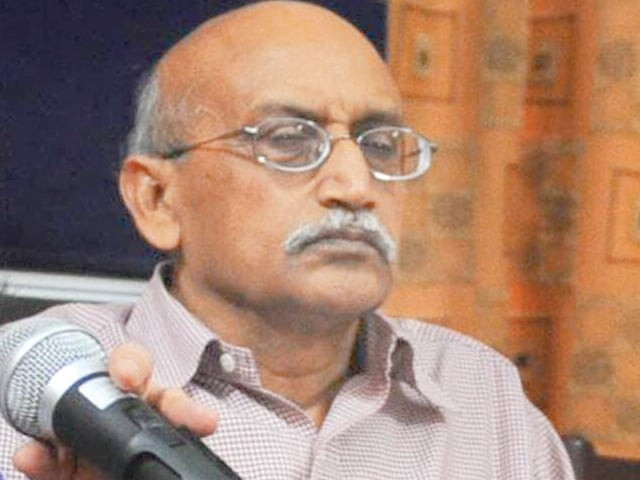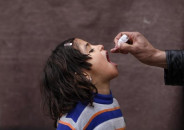Obstetric fistula: Some call for exorcisms for this condition, but surgeons say they have the magic cure
Doctors said that according to a rough estimate, 4,000 to 6,000 women develop fistulas every year.

Obstetric fistula: Some call for exorcisms for this condition, but surgeons say they have the magic cure
“It is better to die than to live with a fistula,” said Dr Shershah Syed, a gynaecologist who started a campaign five years ago to control obstetric fistula, a preventable medical condition in which a hole develops between the rectum and the vagina or between the bladder and the vagina because of prolonged labour or when an unborn child presses too tightly in the birth canal.
Speaking at the Karachi Press Club on Thursday, doctors said that according to a rough estimate, 4,000 to 6,000 women develop fistulas every year.
Dr Syed’s campaign has resulted in the setting up of seven regional centres across Pakistan. Fistula centres are working in Karachi, Hyderabad, Larkana, Quetta and Islamabad with the support of the UNFPA and the federal government.
“This is not a rich man’s disease. Only the poorest of the poor get it,” the gynaecologist said.
The condition causes patients to lose bladder control, because of which they urinate frequently. Most people do not know about the condition, and although it’s a growing health problem in the country’s rural areas, many affected women are thought to be “possessed by an evil spirit” — which makes it even harder to provide treatment to them.
“Women are usually stigmatised because of the odour that emanates from them,” added Dr Syed.
Treatment options include surgery, which has a success rate of 95 per cent, he added.
Causes of condition
Lack of proper obstetric care, illiteracy and early marriage are some of the contributing factors. Dr Nighat Shah, a consultant gynaecologist at the Aga Khan Hospital, Kharadar, said that she recently had a 13-year-old patient from rural Sindh who had developed a fistula.
“She was married at the age of 12 to a man old enough to be her grandfather. Because of an undeveloped bone which helps the baby go through the birth canal, she was in labour from sunrise till sunset.” The baby had died hours ago and the young mother was being taken from one hospital to another in search of “better treatment”.
“Now she continuously urinates and her parents left her at one of the fistula centres because they could not afford treatment,” she added.
Dr Syed said that patients come much more quickly when they find out that the treatment is free. “Otherwise they let it be and the woman dies a silent death.”
At present, a fistula centre at Kohi Goth, Bhens Colony in Karachi receives hundreds of women from far-flung areas every day.
These centres do not just provide medical care. They offer accommodation, psychological counselling and a homely environment for the women to get better, mentally and physically.
Accompanying the doctors at the press club was a team of surgeons from Belgium, Egypt and New York. Laurie Ronanzi, a surgeon from New York, said that the city is known to have one of the world’s first fistula centres “which became obsolete in 1896”.
“At least Pakistan has the infrastructure and doctors to provide information [on this condition]. Many countries even today have no idea what the disease is all about. Prevention is the only option left now, before more lives are wasted.”
To add to the horrors, a new kind of fistula is increasing among women, which Dr Syed said is caused by untrained surgeons and quacks.
Dr Faaria Ahsan, Reproductive Health/Fistula Programme Officer (UNFPA), said that the need is to move away from campaigning to a health-centric approach on providing obstetric care in rural areas. After the surgery, patients need to take medication, which costs around Rs2,000 to Rs3,000 - a cost these poor women can not afford.
“We cannot completely depend on the UNFPA for support. Prevention is the only way out for us at present,” Dr Syed concluded.
A regional conference on genital tract fistula is being organised in Karachi from March 4 to March 6. The conference will be attended by midwives, nurses, general surgeons, family physicians, gynaecologists and urologists.
Published in The Express Tribune, March 4th, 2011.



















COMMENTS
Comments are moderated and generally will be posted if they are on-topic and not abusive.
For more information, please see our Comments FAQ